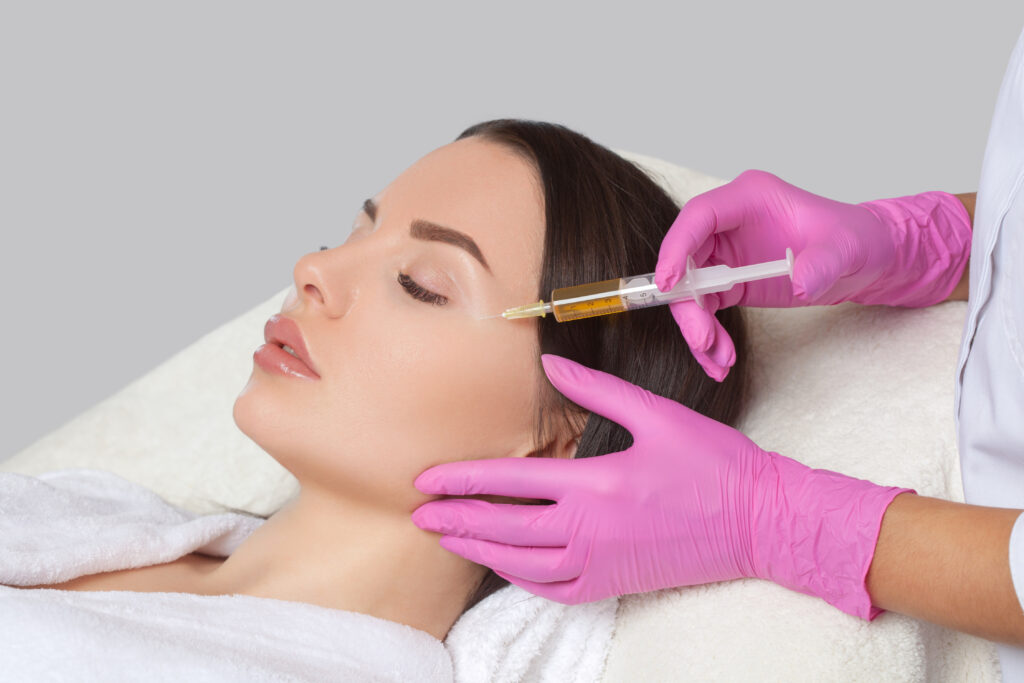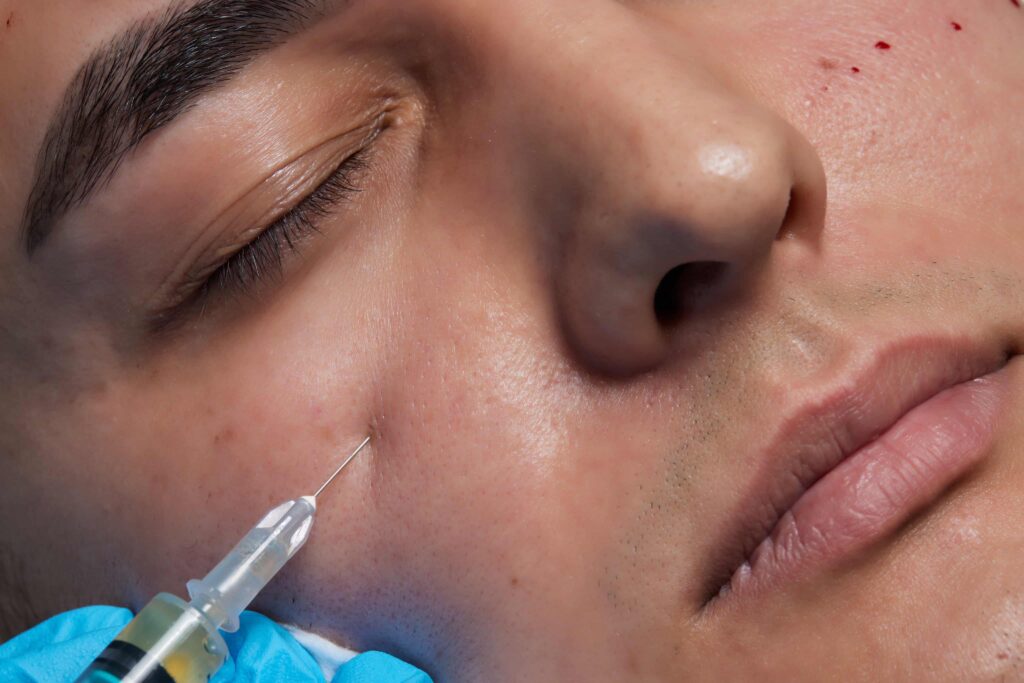PRF stands for platelet-rich fibrin, which contains growth factors necessary for healing.

EZ PRF
EZ PRF uses platelet-rich fibrin (PRF) derived from the patient’s blood and albumin to produce a natural filler. This formulation is safer and more adaptable compared to conventional injectables. The unique composition of EZ PRF results in a gel with innovative and flexible properties, enabling it to conform to different treatment areas within the body effectively.
Under-eye treatment
The under-eye region, characterized by dark hollows or eye bags, presents a challenging area for cosmetic treatment. While platelet-rich plasma (PRP) has been utilized for years to address this concern, PRF has demonstrated superior outcomes due to its sustained release of growth factors. This prolonged release leads to enhanced regeneration of collagen, elastin, and blood flow, resulting in thickening of the skin, reduction of fine lines and wrinkles, and improvement of color and discoloration.
Facial rejuvenation
PRF offers a more natural approach to facial rejuvenation by injecting a higher quantity into various facial areas, thereby restoring volume and lift subtly. Providers can explore combinations with fillers for more pronounced outcomes. Common areas for injection include the under eyes, cheeks, lips, areas in front of the ears, jowl region, temples, and brow lift. Additionally, PRF can be injected into the skin to thicken the overall skin structure. Combining PRF with Laser skin resurfacing can further enhance results.
Lip enhancement
PRF aids in rebuilding collagen, enhancing blood flow to the lips, and improving volume, collagen, and moisture retention. While multiple PRF treatments may be required, and results may not be as significant as those achieved with lip fillers, PRF serves as a natural alternative for individuals hesitant about traditional fillers. Combining PRF with dermal fillers can yield remarkable outcomes for lip enhancement.
PRF differs from PRP in that it contains additional cells like WBC, cytokines, and mesenchymal stem cells. Unlike PRP, PRF does not have additives or anticoagulants, allowing for natural blood clotting. The slow release of growth factors in PRF over seven to ten days promotes healing and regeneration.
The cost of PRF injections can vary depending on the location, provider, and office where the treatment is administered. Prices typically range from $500 to $2000 per treatment.



